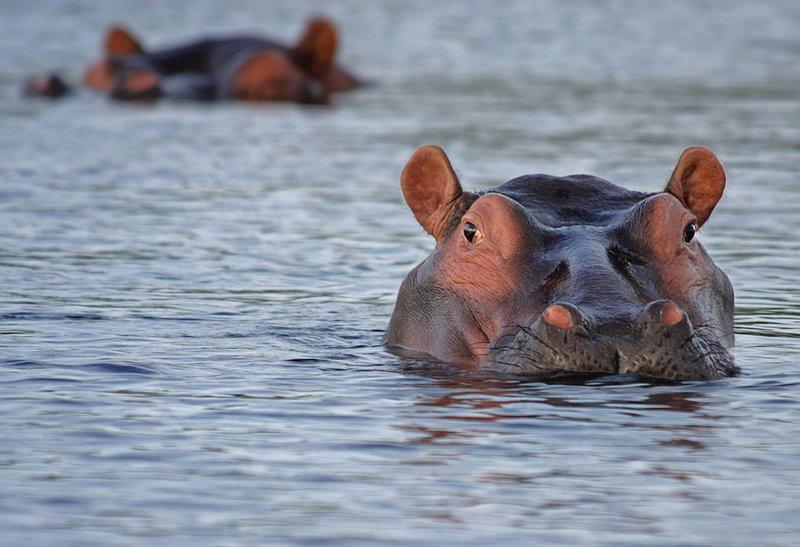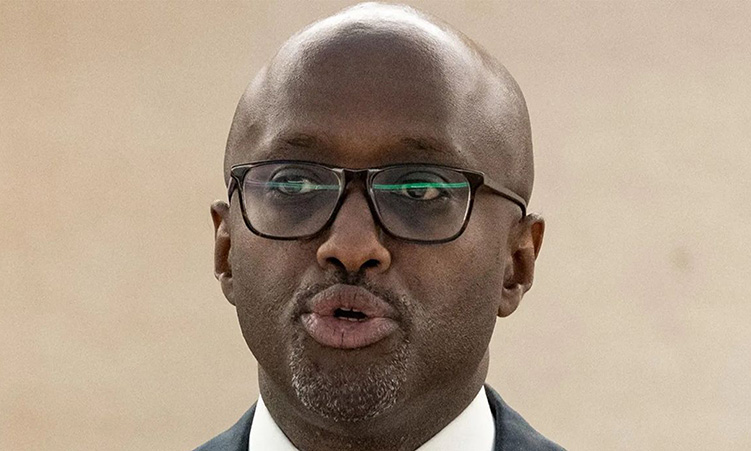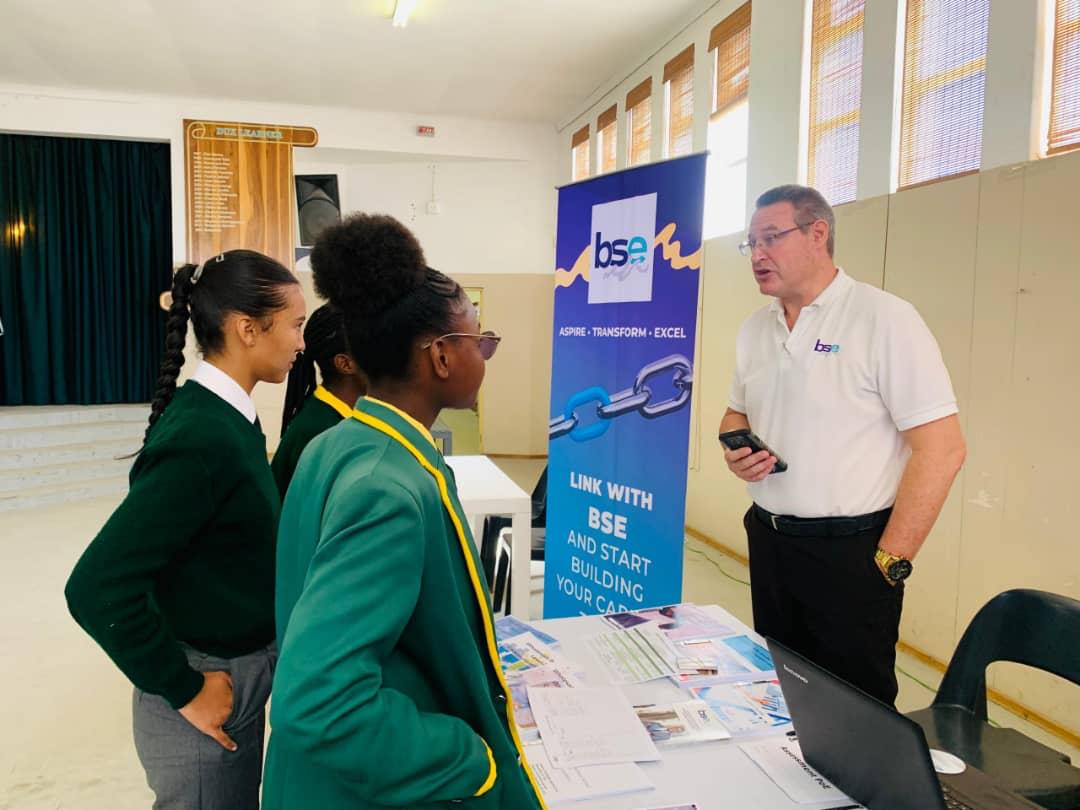WELLINGTON – Former New Zealand prime minister David Lange was the architect of his nation’s anti-nuclear policy that strained relations with the United States.
The former lawyer, a colossus of New Zealand politics with a brilliant wit and sharp intellect, as well as a heavy frame and booming voice, used all his oratory skills to lash the Americans and the French, capturing world headlines. For New Zealanders, his five years in office are remembered even more for the economic transformation from a heavily regulated economy, which had been run in Lange’s memorable phrase “like a Polish shipyard”.Labour prime minister from 1984-89, he defied the US and other Western allies in 1985 by banning nuclear arms and nuclear-powered ships from New Zealand territory and waters.The ban is still in effect.DRAWING THE LINE The day after Lange was elected and amid a foreign exchange crisis, US Secretary of State George Shultz came to Wellington, reminding the avowedly anti-nuclear incoming government of its obligations to admit nuclear powered and armed naval ships under ANZUS, a tripartite defence treaty linking the United States, New Zealand and Australia.In early 1985 the nuclear issue came to a head when New Zealand refused permission for a US naval ship visit because it was not sure if it had nuclear armaments.The US, in line with its neither confirm nor deny policy, refused to say whether such arms were aboard the USS Buchanan.Washington announced military co-operation would end between the two countries, intelligence would not be shared and diplomatic links would be downgraded.The Cold War nuclear arms race had more consequences for New Zealand later in 1985 when Greenpeace flagship The Rainbow Warrior, on its way to protest against French nuclear testing in the South Pacific, was sunk by two bombs in Auckland Harbour killing a crew member.Two French agents were caught and it quickly became clear France had carried out what Lange described as a “sordid act of state sponsored terrorism”.French trade pressure ensured the two agents – another 11 left New Zealand without being caught – never served their 10 year sentences for manslaughter.BITTER TIMES Lange also is credited with giving his nation of four million its most radical economic overhaul in an attempt to open its markets.But for many supporters of the centre-left Labour Party Lange’s years were bitter years.Under Lange’s finance minister Roger Douglas a wave of privatisations and deregulation, similar to those carried out in Britain under Margaret Thatcher, swept away the old order.Farm and export subsidies were abolished and state-run enterprises – such as the railroad, the postal service and telecommunications – were privatised.The changes swept away thousands of jobs in the public sector, pushed many farmers to the brink of bankruptcy and heralded a new breed of brash entrepreneurs, many who disappeared just as quickly in the sharemarket crash of 1987.Few opponents of the reforms laid much of the blame on Lange.After his government was re-elected in 1987, Lange started to realise that Douglas’s blitzkrieg tactics were widening the gaps between the haves and have-nots.Open warfare broke out between the Lange and Douglas offices in 1988.Douglas resigned but a year later was voted back into the cabinet by his colleagues in a move which was the last straw for Lange.His response was to dramatically announce he was standing down as party leader and as prime minister, although he stayed in parliament for another seven years.The son of a doctor, Lange started his career as a lawyer who championed the rights of poor.He became a lawmaker in the northern city of Mangere, near Auckland, in 1977.In 1983 he was elected Labour leader and 16 months later led his party to government.He was 41, the nation’s youngest prime minister of the last century.A Methodist lay preacher, Lange spurned the trappings of official life by not moving into the official premier’s residence.Instead, he rented a small apartment in Wellington.He was known for his down-to-earth wit.In a debate with nuclear weapons’ supporters at Oxford University, Lange’s quips included: “Lean forward, I can smell the uranium on your breath.”‘A SORT OF EPIPHANY’ After divorcing in the 1990s, Lange married his former policy adviser Margaret Pope, with whom he had a daughter.He suffered ill health through much of his adult life.In 1983 he had a stomach-stapling operation in an effort to lose weight.He was treated for coronary heart disease with multiple bypass surgery.He admitted to alcoholism in 1999, joining Alcoholics Anonymous.In 2002 he underwent chemotherapy for a rare plasma disorder.In an Australian TV interview last year, he said knowing his time was limited had changed his outlook.”It’s a funny thing when you think you’re dead.You’re not terrified of it anymore.There’s a sort of a epiphany to religious things, it’s not sort of church based but you end up with a serenity which you didn’t have before and I just simply enjoy it.”It really does sound stupid but I’ve got to tell you it’s made my life.”In 2003 Lange won a Right Livelihood Award, known as the “alternative Nobel”, after reportedly having been nominated for a Nobel Peace Prize.He died on Saturday from complications of renal failure.- Nampa-AP-AFPFor New Zealanders, his five years in office are remembered even more for the economic transformation from a heavily regulated economy, which had been run in Lange’s memorable phrase “like a Polish shipyard”.Labour prime minister from 1984-89, he defied the US and other Western allies in 1985 by banning nuclear arms and nuclear-powered ships from New Zealand territory and waters.The ban is still in effect.DRAWING THE LINE The day after Lange was elected and amid a foreign exchange crisis, US Secretary of State George Shultz came to Wellington, reminding the avowedly anti-nuclear incoming government of its obligations to admit nuclear powered and armed naval ships under ANZUS, a tripartite defence treaty linking the United States, New Zealand and Australia.In early 1985 the nuclear issue came to a head when New Zealand refused permission for a US naval ship visit because it was not sure if it had nuclear armaments.The US, in line with its neither confirm nor deny policy, refused to say whether such arms were aboard the USS Buchanan.Washington announced military co-operation would end between the two countries, intelligence would not be shared and diplomatic links would be downgraded.The Cold War nuclear arms race had more consequences for New Zealand later in 1985 when Greenpeace flagship The Rainbow Warrior, on its way to protest against French nuclear testing in the South Pacific, was sunk by two bombs in Auckland Harbour killing a crew member.Two French agents were caught and it quickly became clear France had carried out what Lange described as a “sordid act of state sponsored terrorism”.French trade pressure ensured the two agents – another 11 left New Zealand without being caught – never served their 10 year sentences for manslaughter.BITTER TIMES Lange also is credited with giving his nation of four million its most radical economic overhaul in an attempt to open its markets.But for many supporters of the centre-left Labour Party Lange’s years were bitter years.Under Lange’s finance minister Roger Douglas a wave of privatisations and deregulation, similar to those carried out in Britain under Margaret Thatcher, swept away the old order.Farm and export subsidies were abolished and state-run enterprises – such as the railroad, the postal service and telecommunications – were privatised.The changes swept away thousands of jobs in the public sector, pushed many farmers to the brink of bankruptcy and heralded a new breed of brash entrepreneurs, many who disappeared just as quickly in the sharemarket crash of 1987.Few opponents of the reforms laid much of the blame on Lange.After his government was re-elected in 1987, Lange started to realise that Douglas’s blitzkrieg tactics were widening the gaps between the haves and have-nots.Open warfare broke out between the Lange and Douglas offices in 1988.Douglas resigned but a year later was voted back into the cabinet by his colleagues in a move which was the last straw for Lange.His response was to dramatically announce he was standing down as party leader and as prime minister, although he stayed in parliament for another seven years.The son of a doctor, Lange started his career as a lawyer who championed the rights of poor.He became a lawmaker in the northern city of Mangere, near Auckland, in 1977.In 1983 he was elected Labour leader and 16 months later led his party to government.He was 41, the nation’s youngest prime minister of the last century.A Methodist lay preacher, Lange spurned the trappings of official life by not moving into the official premier’s residence.Instead, he rented a small apartment in Wellington.He was known for his down-to-earth wit.In a debate with nuclear weapons’ supporters at Oxford University, Lange’s quips included: “Lean forward, I can smell the uranium on your breath.”‘A SORT OF EPIPHANY’ After divorcing in the 1990s, Lange married his former policy adviser Margaret Pope, with whom he had a daughter.He suffered ill health through much of his adult life.In 1983 he had a stomach-stapling operation in an effort to lose weight.He was treated for coronary heart disease with multiple bypass surgery.He admitted to alcoholism in 1999, joining Alcoholics Anonymous.In 2002 he underwent chemotherapy for a rare plasma disorder.In an Australian TV interview last year, he said knowing his time was limited had changed his outlook.”It’s a funny thing when you think you’re dead.You’re not terrified of it anymore.There’s a sort of a epiphany to religious things, it’s not sort of church based but you end up with a serenity which you didn’t have before and I just simply enjoy it.”It really does sound stupid but I’ve got to tell you it’s made my life.”In 2003 Lange won a Right Livelihood Award, known as the “alternative Nobel”, after reportedly having been nominated for a Nobel Peace Prize.He died on Saturday from complications of renal failure.- Nampa-AP-AFP
Stay informed with The Namibian – your source for credible journalism. Get in-depth reporting and opinions for
only N$85 a month. Invest in journalism, invest in democracy –
Subscribe Now!










